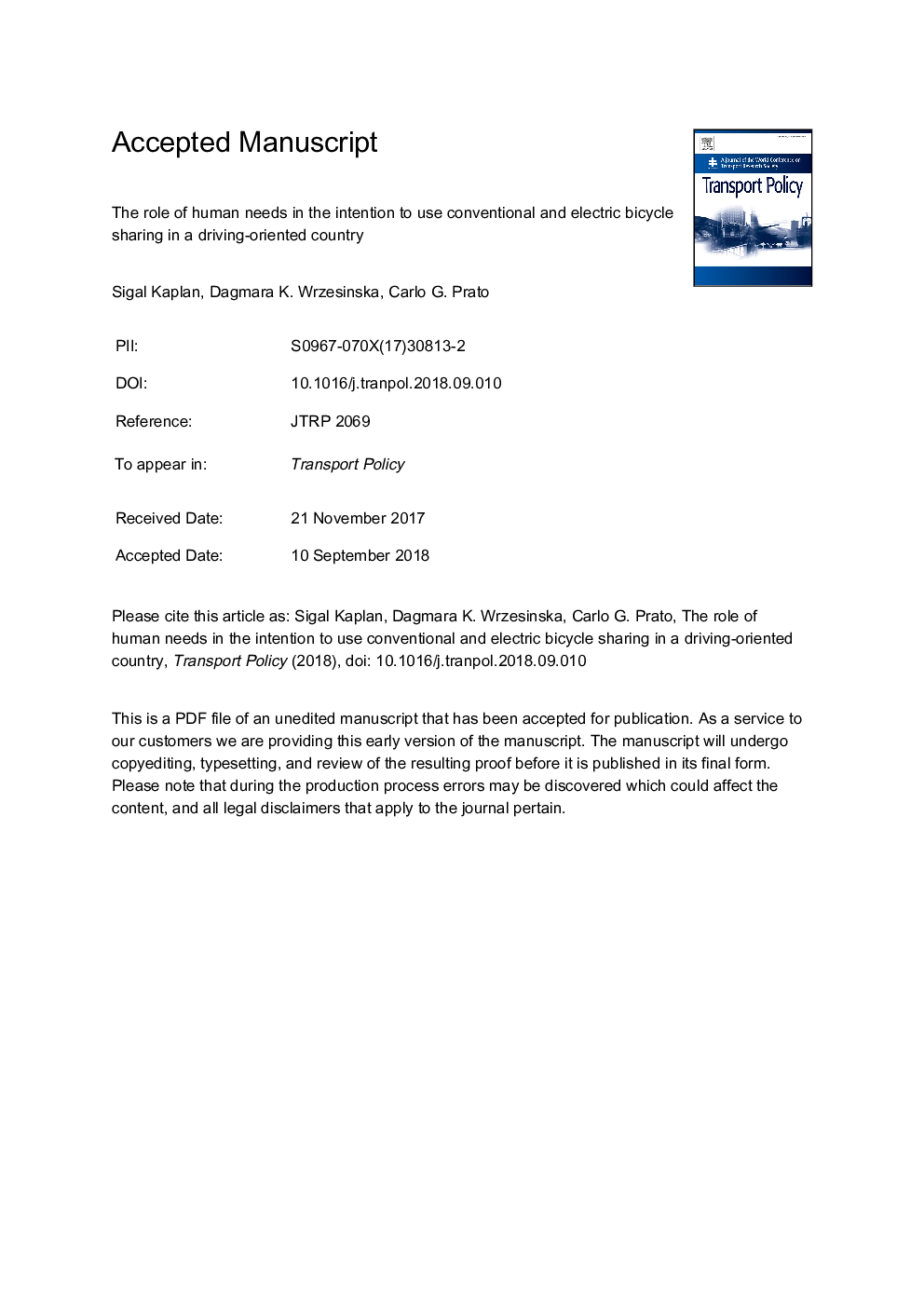| Article ID | Journal | Published Year | Pages | File Type |
|---|---|---|---|---|
| 9953255 | Transport Policy | 2018 | 29 Pages |
Abstract
The behavioural framework was designed to assess the relations between intentions and characteristics of travellers in terms of socioeconomic traits, habitual travel, and human needs according to the ERG (existence, relatedness, growth) theory of needs. A web-based survey collected the information necessary to evaluate empirically the framework, and a hybrid bivariate ordered model estimated the hypothesised relations. The findings from the model revealed gender and age differences in the probability of using electric bicycles, as female as well as older respondents were more likely to prefer the technological innovation. Also, the findings from the model showed indeed relations between needs and the intentions to use bicycle sharing schemes: interestingly, while functional and relational needs were associated with a higher likelihood of using both types of bicycle, self-actualisation needs were related to a higher probability of using a conventional bicycle and a lower one of using an electric bicycle. Accordingly, promoting bicycle sharing and more broadly cycling should not only focus on the value of moving from one place to the next, but also on the social and relational value of cycling as well as the self-actualisation potential.
Related Topics
Social Sciences and Humanities
Social Sciences
Geography, Planning and Development
Authors
Sigal Kaplan, Dagmara K. Wrzesinska, Carlo G. Prato,
